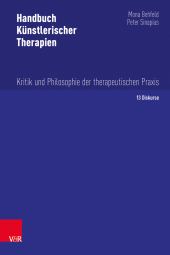 Neuerscheinungen 2019Stand: 2020-02-01 |
Schnellsuche
ISBN/Stichwort/Autor
|
Herderstraße 10
10625 Berlin
Tel.: 030 315 714 16
Fax 030 315 714 14
info@buchspektrum.de |

Barbara Mahlmann- Bauer, Christopher B. Brown, Günter Frank, Bruce Gordon, Barbara Mahlmann-Bauer, Tarald Rasmussen, Herman J. Selderhuis, Violet Soen, Anna Vind, Günther Wassilowsky, Siegrid Westphal
(Beteiligte)
Latomus and Luther
The debate: Is every good deed a sin?. Dissertationsschrift
Herausgegeben von Selderhuis, Herman J.; Mitarbeit: Frank, Günter; Wassilowsky, Günther; Westphal, Siegrid; Rasmussen, Tarald; Gordon, Bruce; Brown, Christopher B.
2019. 329 S. 23.2 cm
Verlag/Jahr: VANDENHOECK & RUPRECHT 2019
ISBN: 3-525-55251-3 (3525552513)
Neue ISBN: 978-3-525-55251-3 (9783525552513)
Preis und Lieferzeit: Bitte klicken
Who was Jacob Latomus?
Who was Jacob Latomus? What did he write in the series of lectures to which Luther penned an answer in 1521, an answer which is now so central to many interpretations of the great reformer? And how is the reading of that answer affected when it is preceded by an interpretation of what Latomus wrote?The study goes through the most important parts of Latomus´ treatise against Luther (1521). The aim is to identify Latomus´ theological convictions and thus to pin down who and what Luther was up against. The second and major part of the book is a reading of Luther´s pamphlet against Latomus (1521). Parallels are drawn with Latomus´ theology in order to facilitate as much as possible an appreciation of the differences between the two.The comparison between the two theologians shows that they speak completely different languages and that their viewpoints do not square at all. Basically their ways depart in their understanding of God´s word and how it is communicated to man. This generates two ways of perceiving the matter of theology, and of speaking theologically -: and prevents mutual understanding. Latomus cannot understand Luther´s view of the autonomy of God´s word and the special character of proclamation, and hence a theology which is incompatible with natural reason. Even though he accepts a division between a natural and a supernatural rationality, and thus admits that natural reason has a limit, he grants the very same natural reason an important role in the ascent of cognition towards revelation. Everything else - such as Luther´s theology - is a dehumanization of the human being. Luther, on the other hand, regards Latomus´ theology as a result of the impulse in sinful man towards ruling and controlling the word of God with his own inadequate natural abilities. In Luther´s eyes that proclamation of Christ, which in the shape of a human being comes to man in contradiction of everything human, here disappears in the twinkling of an eye.
Vind, Anna
Anna Vind, PhD, is professor with special responsibilities at the ´Afdelinger´ Department of Church History at the University in Copenhagen.
Selderhuis, Herman J.
Dr. theol. Herman J. Selderhuis ist Professor für Kirchengeschichte an der Theologischen Universität Apeldoorn, Direktor von Refo500, Wissenschaftlicher Kurator der Johannes a Lasco Bibliothek sowie Präsident des Internationalen Calvinkongresses.
Soen, Violet
Dr. Violet Soen is Associate Professor for Early Modern History at the Faculty of Arts at the University of Leuven.
Westphal, Siegrid
Siegrid Westphal ist Hochschullehrerin für die Geschichte der Frühen Neuzeit an der Universität Osnabrück und Leiterin des Projektes


